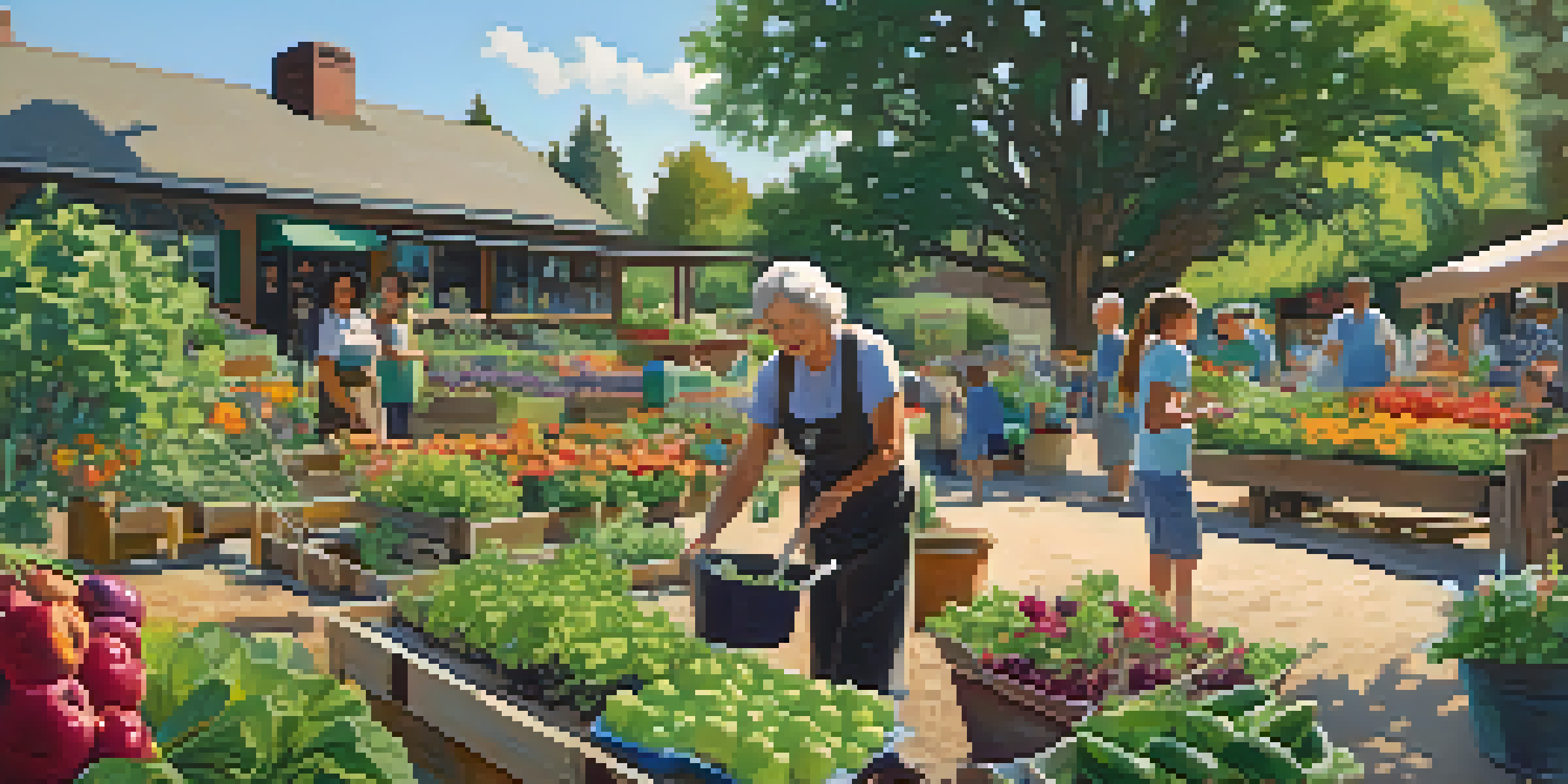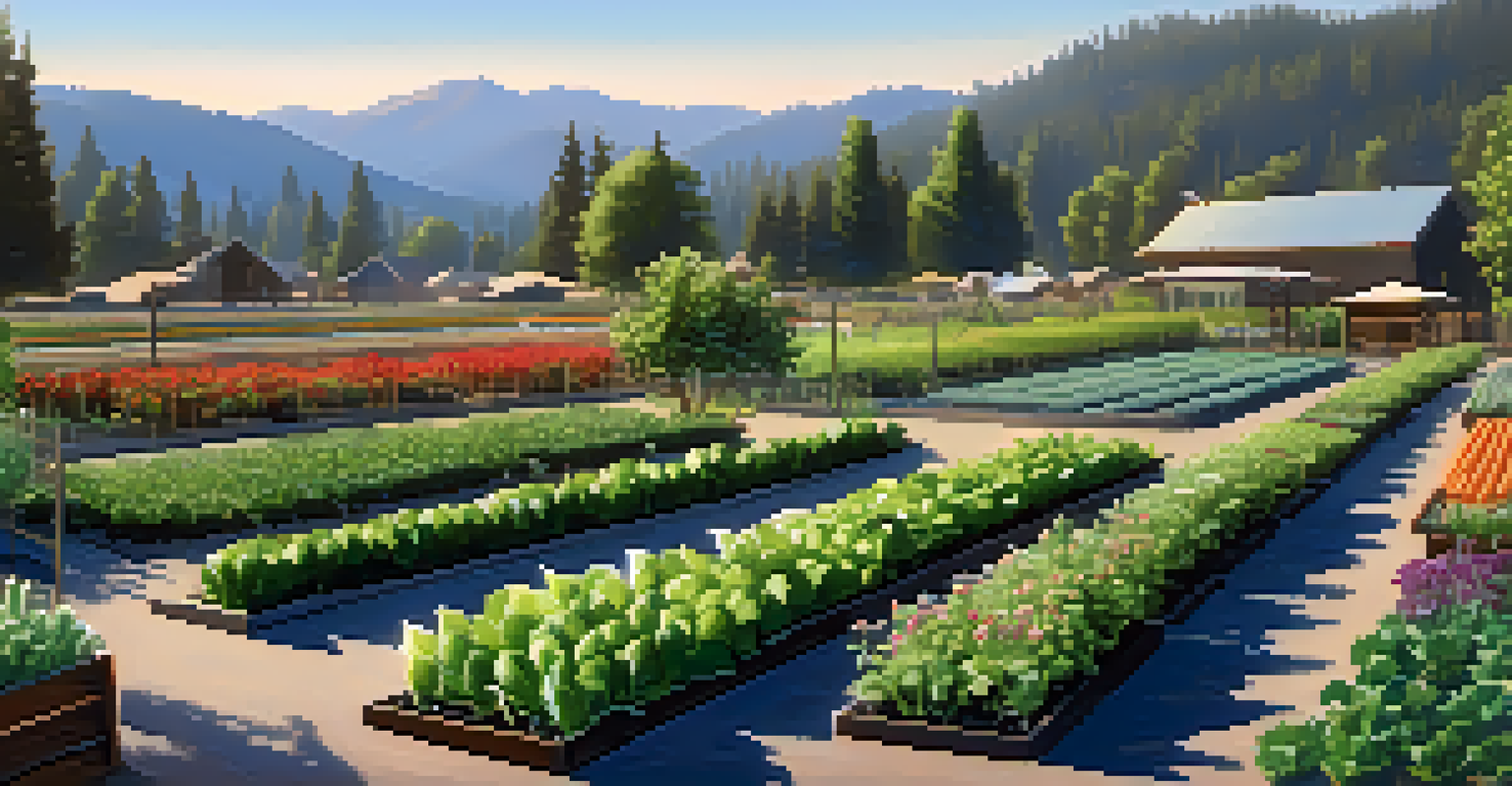Discover Big Bear's Community Gardens: A Local Treasure

What Are Community Gardens and Their Purpose?
Community gardens are shared spaces where local residents come together to grow fruits, vegetables, and flowers. These gardens not only provide fresh produce but also foster a sense of community and collaboration among neighbors. Imagine a vibrant patch of land where everyone contributes, learns, and shares the harvest; that's the essence of a community garden.
Gardening adds years to your life and life to your years.
In Big Bear, these gardens serve as a hub for social interaction, education, and sustainability. They empower individuals to take part in food production, promoting healthier eating habits and reducing their carbon footprint. Plus, they offer a fantastic way to connect with nature and enjoy the outdoors.
The beauty of community gardens is that they cater to everyone, regardless of gardening experience. From seasoned green thumbs to curious beginners, all are welcome to participate and benefit from the communal spirit. It's a place where friendships bloom alongside the plants!
The Benefits of Community Gardening in Big Bear
Community gardening is more than just a hobby; it offers numerous benefits for individuals and the wider community. One of the most significant advantages is access to fresh produce, which can enhance nutrition and promote a healthier lifestyle. There's something special about picking vegetables right from the garden and knowing they’re organic and pesticide-free.

Moreover, these gardens can significantly improve mental health. Gardening has been shown to reduce stress, anxiety, and depression, providing a therapeutic outlet for many. Imagine tending to a garden after a long day; the simple act of digging in the soil and nurturing plants can be incredibly grounding.
Community Gardens Foster Connection
Community gardens create shared spaces that promote social interaction and collaboration among local residents.
Additionally, community gardens encourage environmental sustainability. By practicing organic gardening techniques and sharing resources, participants contribute to biodiversity and local ecosystems. It's a small step towards a more sustainable future, all while cultivating a sense of stewardship for the land.
Meet the Gardeners: Stories from the Community
The heart of Big Bear's community gardens lies in the stories of the people who nurture them. From retirees looking to pass on their gardening skills to families wanting to grow their own food, each gardener brings a unique perspective and story. These individual narratives intertwine to create a rich tapestry of community spirit.
To plant a garden is to believe in tomorrow.
Take, for example, Maria, a local grandmother who has been gardening in Big Bear for over a decade. She loves sharing her knowledge with kids in the community, teaching them about the importance of growing their own food. Her enthusiasm is infectious and inspires many to dig in and get their hands dirty.
Then there's Jake, a young entrepreneur who started a small business selling organic produce from the garden. His journey from a hobbyist to a business owner showcases how community gardens can offer opportunities and foster innovation. Each person's story adds depth to the community and highlights the diverse motivations behind gardening.
How to Get Involved in Big Bear's Community Gardens
Getting involved in Big Bear's community gardens is easier than you might think! Many gardens have open enrollment periods, where anyone interested can join and claim a plot. This is a great opportunity to meet fellow gardeners and learn from their experiences. Just imagine stepping into a flourishing garden filled with laughter and shared tips!
If you're not ready to commit to a plot, don’t worry! Many gardens also welcome volunteers for seasonal activities, such as planting, weeding, or harvesting. Volunteering not only helps the gardens thrive but also allows you to connect with your neighbors and community members. Plus, it’s a fantastic way to learn the ropes without the pressure of a personal garden.
Gardening Benefits Mental Health
Engaging in community gardening activities has been shown to significantly improve mental health by reducing stress and providing therapeutic benefits.
Another way to participate is by attending workshops and events hosted by the gardens. These gatherings often cover a range of topics, from organic gardening techniques to cooking demonstrations. Engaging in these events can deepen your understanding of gardening while building lasting friendships.
The Environmental Impact of Community Gardens
Community gardens play a crucial role in promoting environmental sustainability in Big Bear. By transforming vacant lots into green spaces, they help mitigate urban heat, improve air quality, and increase biodiversity. It’s a win-win situation where both people and nature benefit from the collaboration.
Additionally, these gardens often utilize organic gardening practices that minimize the use of harmful chemicals. This not only protects local wildlife but also ensures that the produce grown is safe for consumption. When you choose to grow food organically, you contribute to a healthier ecosystem, which is essential for the planet's wellbeing.
Moreover, community gardens encourage the use of native plants, which can attract beneficial insects and pollinators. By creating habitats for these species, gardeners help enhance local biodiversity and strengthen the environment. Every plant nurtured in these gardens is a step towards a more sustainable future.
Challenges Faced by Community Gardens
While community gardens are often seen as idyllic spaces, they do face challenges that can hinder their growth. Limited funding and resources can make it difficult for gardeners to maintain their plots and expand their initiatives. Many rely on donations and grants, which can be inconsistent and competitive.
Another challenge is the varying commitment levels among members. Some gardeners might be incredibly dedicated, while others may struggle to find the time to tend to their plots. This can lead to frustrations within the community, as a lack of participation can impact the overall health of the garden.
Sustainability Through Local Efforts
Community gardens contribute to environmental sustainability by utilizing organic practices and enhancing local biodiversity.
Weather conditions can also pose a challenge, especially in regions like Big Bear, where harsh winters and dry summers can affect plant growth. Gardeners must be adaptable and resilient, learning to work with the natural elements while finding solutions to protect their plants.
The Future of Community Gardens in Big Bear
Looking ahead, the future of community gardens in Big Bear shines brightly. As awareness of sustainable living grows, more residents are recognizing the value of these gardens for food production, community building, and environmental stewardship. This trend could lead to an increase in the number of gardens and participants.
Moreover, local governments and organizations are beginning to support community gardening initiatives through funding and resources. Collaborations between community members and local leaders can lead to innovative solutions that address existing challenges. Imagine a future where every neighborhood has its own thriving garden!

As we embrace this future, it’s essential to continue fostering inclusivity and education within the community. By encouraging diverse participation and sharing knowledge, we can ensure that Big Bear’s community gardens remain vibrant and accessible for generations to come.